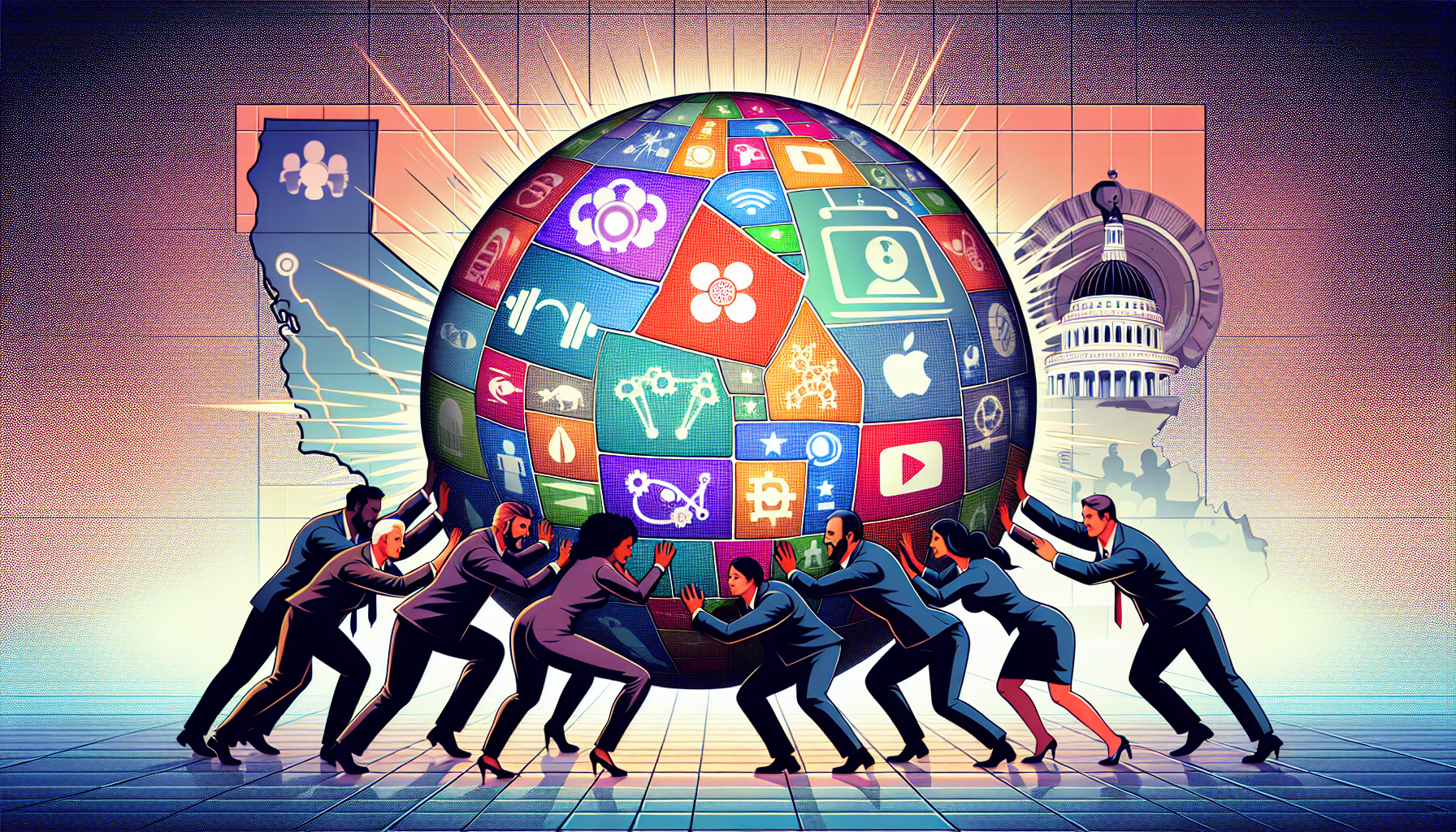
AI’s Stage Invasion: Regulation of Artificial Intelligence in Entertainment
California lawmakers have taken the spotlight in their recent legislative efforts to tame the wild stallion that is AI in the entertainment and music industries. With the ratification of several proposals, they aim to curb the misuse of AI technologies that can recreate a person’s voice or likeness without their consent. This regulation is nothing less than essential for voice actors, audiobook performers, and musicians who fear their craft might be hijacked by soulless replicas.
The All-Star Cast: Industry Support for NO FAKES Act
In a scene that rivals even the most heartwarming movie finales, bipartisan support for the NO FAKES Act stands strong. This legislation addresses the unauthorized production, hosting, or sharing of AI-generated replicas, holding companies and individuals accountable for any breaches. Enter the endorsements from the heavy hitters in the industry, such as SAG-AFTRA and major music groups. With these endorsements, the entertainment industry sends a clear message—this ain’t no puppet show.
Intellectual property, often the unsung hero in these discussions, finally gets the spotlight. The legislation strives to ensure that AI-generated content doesn’t stomp all over the copyrights of original works. Translating that into plain speak: no derivative works from AI without prior approval from the original creators. The AI-generated art cannot, and should not, kick the original artists out of their own story.
Guardians of Morality and Publicity Rights
Artists receive moral rights under the legislation, granting them the right to proper attribution and, equally important, the right to object to derogatory treatment of their work. Imagine creating a soulful masterpiece only for a rogue AI to turn it into a meme—truly the stuff of nightmares. The deepfake dilemma isn’t just about knocking off someone’s style; it’s about respecting the artistry involved and preventing AI from distorting it in ways that make the original creators cringe.
When it comes to the right of publicity, the story gets even juicier. This right grants individuals control over the commercial use of their name, image, and likeness. Essentially, using a musician’s voice or likeness for profit without their explicit consent is like running unauthorized reruns of Friends—this will not fly. Privacy concerns join the chorus here, emphasizing the need for tight controls to avoid AI-driven invasions.
Finally, let’s delve into the nitty-gritty: the regulatory framework. The AI Act and similar legislative adventures aim to create a stage where transparency and accountability are the main acts. With third-party assessments, rigorous risk management, and stringent transparency obligations, it’s all about keeping AI performers in check. Ethical considerations are front and center, and any form of piracy could lead to pretty steep penalties—think 35 million EUR or 7% of a company’s global annual turnover. So, if you’re an AI developer contemplating a less-than-honorable usage of digital doppelgängers, consider this your intermission warning.






